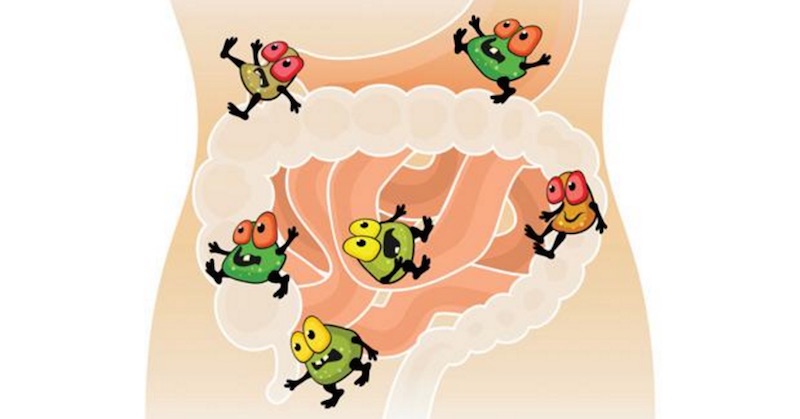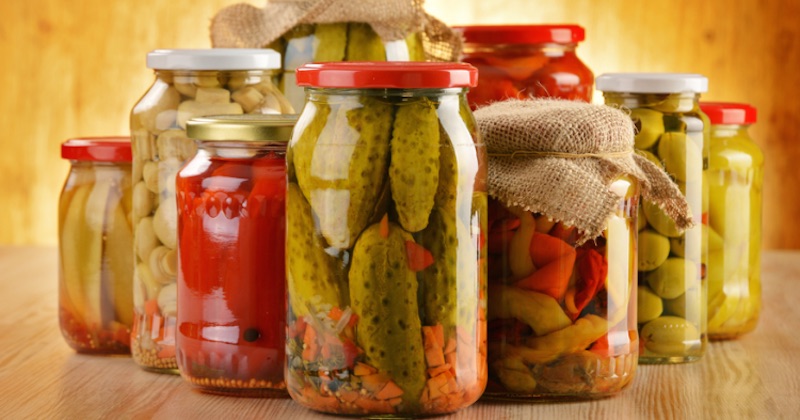Compromised Gut Flora Leads To ADHD, Autism And Learning Disabilities
Last updated on
Increasingly, scientific evidence shows that nourishing your gut flora with friendly bacteria known as probiotics is extremely important for proper brain function, and that includes psychological well-being and mood control.
It may sound odd that bacteria in your gut could impact emotions such as anxiety, but that is exactly what the research bears testimony to.

Good Bacteria Helps Relieve Anxiety
The probiotic known as Bifidobacterium longum NCC3001 has been shown to normalize anxiety-like behavior in mice with infectious colitis.
The Journal of Neurogastroenterology and Motility reported the novel finding that this bacteria’s effect on anxiety involves modulating the vagal pathways within the gut-brain:
“As B. longum decreases excitability of enteric neurons, it may signal to the central nervous system by activating vagal pathways at the level of the enteric nervous system.”
You may not be aware that you actually have two nervous systems:
- Central nervous system, composed of your brain and spinal cord
- Enteric nervous system, which is the intrinsic nervous system of your gastrointestinal tract
Both are actually created out of the same type of tissue. During fetal development, one part turns into your central nervous system while the other develops into your enteric nervous system.
These two systems are connected via the vagus nerve, the tenth cranial nerve that runs from your brain stem down to your abdomen. It is now well established that the vagus nerve is indeed the primary route your gut bacteria use to transmit information to your brain.
Think Of Your Gut As Your Second Brain
In a very real sense you have two brains: one inside your skull and one in your gut, and each needs its own vital nourishment. Your gut and brain actually work in tandem, each influencing the other. This is why your intestinal health can have such a profound influence on your mental health, and vice versa; as well as the reason why your diet is so closely linked to your mental health.
This year has been an exciting one for unraveling some of the “mystery” between gut flora and mental health. For example, research demonstrated that probiotics have a direct effect on brain chemistry under normal conditions—in such a way that can impact your feelings of anxiety or depression.
In short, the probiotic Lactobacillus rhamnosus had a marked effect on GABA (an inhibitory neurotransmitter that is significantly involved in regulating many physiological and psychological processes) levels in certain brain regions and lowered the stress-induced hormone corticosterone, resulting in reduced anxiety and depression-related behavior.
When researchers severed the vagus nerve, GABA receptor levels and the animals’ behavior remained unchanged after treatment with L. rhamnosus, confirming that the vagus nerve is most likely the primary pathway of communication between the bacteria in your gut and your brain.
The authors concluded:
Together, these findings highlight the important role of bacteria in the bidirectional communication of the gut-brain axis and suggest that certain organisms may prove to be useful therapeutic adjuncts in stress-related disorders such as anxiety and depression.
Interestingly, neurotransmitters like serotonin are also found in your gut. In fact, the greatest concentration of serotonin, which is involved in mood control, depression and suppressing aggression, is found in your intestines, not your brain!
Compromised Gut Flora Leads To ADHD, Autism, And Learning Disabilities
Once you understand the influence your gut health can have on your feelings of anxiety, it’s not such a large leap to consider their role in other mental and emotional challenges, especially if your gut health is compromised from birth.
As Dr. Natasha Campbell-McBride shared in the recent interview below, establishment of normal gut flora in the first 20 days or so of life plays a crucial role in the appropriate maturation of your baby’s immune system. Hence, babies who develop abnormal gut flora are left with compromised immune systems, which incidentally appears to greatly increase their risk of being injured by the standard vaccination protocol.
Total Video Length: 1:13:21
Download Interview Transcript
Dr. Campbell-McBride explains:
The baby acquires its gut flora at the time of birth, when the baby goes through the birth canal of the mother. So whatever lives in mom’s birth canal, in mom’s vagina, becomes the baby’s gut flora. So what lives in mom’s vagina? It’s a very richly populated area of a woman’s body. The vaginal flora comes from the bowel. So if the mother has abnormal gut flora, she will have abnormal flora in her birth canal.
She presents a fascinating and elegant description of the foundational conditions that contribute to such disorders as ADHD, learning disabilities and autism, along with a pragmatic approach to help circumvent and stem the autism epidemic—and it all begins with the mother’s gut flora. You can read more about this intriguing connection in her book Gut and Psychology Syndrome.
Obviously, this information has major implications for parents, as optimizing your gut flora, and your child’s early on, will give your children the best start at a healthy life. But even if you’re not a parent, knowing this connection will help you understand the grand scale by which probiotics can affect your health.
The type and quantity of micro-organisms in your gut interact with your body in ways that can either prevent or encourage the development of many diseases; probiotics have over 30 beneficial pharmacological actions that we know of, including:
- Anti-bacterial
- Anti-allergenic
- Anti-viral
- Immunomodulatory
- Anti-infective
- Antioxidant
- Antiproliferative
- Apoptopic (cellular self-destruction)
- Antidepressive
- Antifungal
- Cardioprotective
- Gastroprotective
- Radio and chemo-protective
- Upregulates glutathione and certain glycoproteins that help regulate immune responses, including interleukin-4, interleukin-10 and interleukin-12
- Downregulates interleukin-6 (a cytokine involved in chronic inflammation and age-related diseases
- Inhibits tumor necrosis factor (TNF) alpha inhibitor, NF-kappaB, epidermal growth factor receptor, and more
These complex therapeutic properties have potential benefit in over 180 diseases, according to the peer-reviewed biomedical research.
Probiotics Likely More Important Than A Multi-Vitamin
Many people start their day by popping a multi-vitamin as a sort of “insurance policy” to cover their bases, nutritionally speaking. But all in all, the research into probiotics indicates that supplementing with probiotics is probably more important than taking a multi-vitamin. In fact, many of the essential nutrients that we find in multi-vitamins are produced for us 24/7 by these beneficial bacteria, such as the entire spectrum of B Group vitamins.

Actually, the best way to ensure optimal gut flora is to regularly consume traditionally fermented foods, which are naturally rich in good bacteria. Pasteurized versions will NOT have the same benefits, as the pasteurization process destroys many, if not all of the naturally occurring probiotics. So you will need to seek out traditionally fermented, unpasteurized foods, or make them yourself. This includes:
- Fermented raw milk such as kefir or yogurt, but NOT commercial versions, which typically do not have live cultures and are loaded with sugars that feed pathogenic bacteria. Make your own.
- Various pickled fermentations of cabbage sauerkraut,, turnips, eggplant, cucumbers, onions, squash, and carrots
- Lassi (an Indian yogurt drink, traditionally enjoyed before dinner)
- Tempeh, Kimchi, Natto (fermented soy)
If you do not eat these types of foods regularly, then a high-quality probiotic supplement can help fill in the gap and give your gut the healthy bacteria it needs. This is the first part of the equation.
The second part of the equation to optimizing your gut flora lies in avoiding the many factors that can throw your bacteria equilibrium way off balance. All of the following lifestyle and environmental factors can seriously damage the healthy bacteria residing in your gut:
- Antibiotics (including antibiotics given to livestock for food production)
- Agricultural chemicals and pesticides
- Chlorinated and fluoridated water
- Antibacterial soaps etc
- Pollution
- Processed foods
- Sugar/fructose
- Refined grains
For the sake of your gut health, it is vitally important to eliminate ALL sugars, as they will sabotage any beneficial effects of the fermented foods. In short, sugar acts as a “nutrient” for the disease-causing yeast, fungi and bacteria that are in your gut. If you’ve been struggling with anxiety, or other signs that you have an excess of unhealthy bacteria in your gut, such as gas and bloating, fatigue, sugar cravings, nausea, headaches, constipation or diarrhea, eliminating sugar and fructose is an excellent starting point toward recovery.
As you remove the offending foods from your diet and begin to introduce nourishing probiotics, your gut flora will come back into a healthy balance. Once this occurs, it’s common to experience a variety of emotional and physical improvements.
This article was originally published on DrMercola.com. Republished here with permission.
Some of the links I post on this site are affiliate links. If you go through them to make a purchase, I will earn a small commission (at no additional cost to you). However, note that I’m recommending these products because of their quality and that I have good experience using them, not because of the commission to be made.


































 JOIN OVER
JOIN OVER
Comments